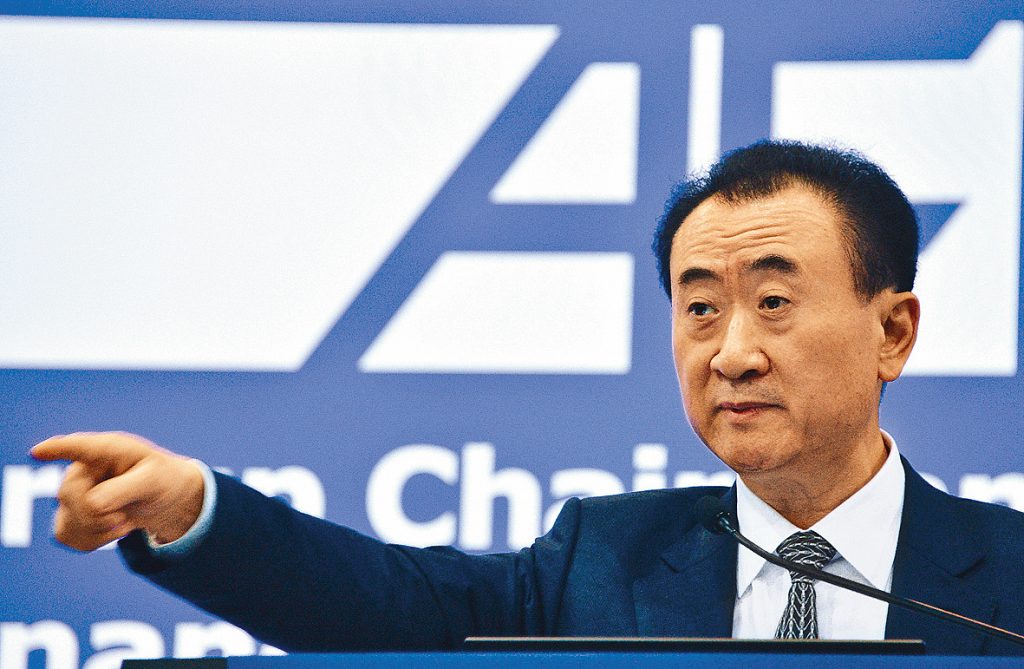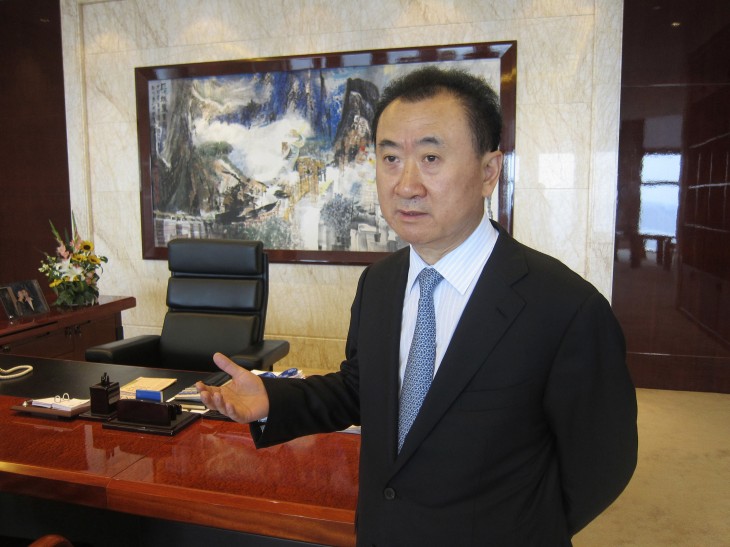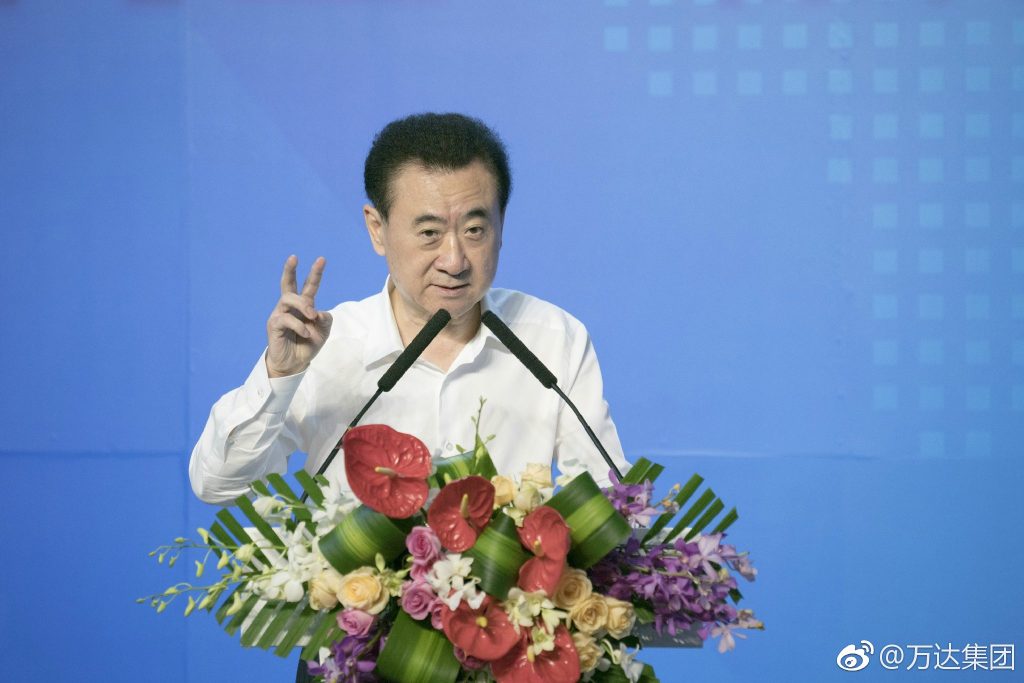
Last week the news broke that Dalian Wanda, the powerful Chinese real estate developer and entertainment company, was selling off its half-built movie studio, a massive complex under construction near Qingdao.
It was the latest in a string of bad news days for Wanda, most of which have been precipitated by the Chinese government’s increasingly strict controls on outbound investment. Wanda’s $1B purchase of Dick Clark Productions fell through in March of this year. The chairman/CEO and the head of China operations of Legendary Entertainment, the film production company that Wanda bought in 2016 for $3.5B, both left this year and have yet to be replaced. Legendary’s recent films (with the exception of Kong: Skull Island) have tanked everywhere but China. Wanda quietly withdrew its attempt to fold Legendary into its existing film operations and list the reformulated company on a Chinese stock exchange. Wanda announced an ignominious sale of its theme parks less than a year after announcing Wanda was going to clean Disney’s clock.
And looming over it all, the Chinese government has made it clear – in increasingly public fashion – that Wanda’s ability to borrow money will be highly constrained.
Both Legendary and Wanda’s subsidiary AMC Theaters issued public statements in the past week that they were not dependent on Wanda for funding; the Western markets were not impressed.
No doubt many people in Hollywood are engaging in a bit of schadenfreude right now. Wang Jianlin, the founder and chairman of Wanda, is a bit like the LaVar Ball of Chinese entertainment (albeit with $30 billion more to his name). He was brash, but plenty of people wanted to do a deal with him when he had assets to burn and was talking about taking a stake in every major studio. Now they’re not sure what to think.
I don’t feel any joy at Wanda’s apparent retreat from the movie business, if that is in fact what’s happening. Yes, they’ve had substantial setbacks and remain highly leveraged, but Wanda is still a huge company and a major player in real estate development, which has always been its core business. It controls more movie screens than any other company in the world, and it still has a sizable film production division. Wang is a shrewd businessman and not to be underestimated. You don’t get to be the richest man in China without having a lot on the ball. Everyone thought he had overpaid for AMC Cinemas but the company has more than doubled in value since he bought it.
But Wanda’s proposed studio in Qingdao never made much sense to me. I lived in Qingdao, and it is a wonderful city. But it has scant connection with the Chinese film industry, and little to recommend it as the site of the world’s largest studio. Wanda promised moviemaking on a grand scale, including enormous soundstages, multiple backlots, and a 40% subsidy for anyone making a movie there. But the reality on the ground never seemed to match the rhetoric, and few (if any) filmmakers not associated with Wanda or Legendary have filmed there.
What was the reality on the ground in Qingdao, anyway? My colleague Steve Dickinson (who spent nearly a decade in Qingdao) and I could never figure it out. The studio complex is almost an hour’s drive south of the city proper, with nothing of note in between but for a few factories. When we visited the site a few years ago, you would never have known that a huge film studio was being built. It just seemed like a pure real estate play: swarms of agents descended on anyone who got close, thrusting brochures for as-yet unbuilt apartment towers. Tour buses stopped by regularly and disgorged passengers who had no knowledge of, or interest in, the studio. And this was well after the glitzy announcement with Nicole Kidman, Leonardo DiCaprio, and John Travolta in Qingdao.
The Qingdao studio complex is now being sold to Sunac, another Chinese developer. Will the studio be completed by Sunac? Was it ever going to be completed? Who knows? Wanda certainly had the money to build it, and Wang loves movies. The ultrawealthy have a long history of bankrolling films, from Howard Hughes up to Megan Ellison. Perhaps this is just a strategic retrenchment. Wanda’s strategy with the Qingdao studio complex wasn’t much different from that of many Hollywood players: if you can’t sell the steak, sell the sizzle.
The recent headlines characterize Wanda’s troubles as if they were the result of poor business judgment. I don’t think that’s fair. This story isn’t about Wanda. It’s really a story about China’s reluctance to let foreign entertainment companies compete in a free market. Just look at what’s happening in Chinese movie theaters right now. A foreign movie blackout is in place, and the screens are being inundated with The Founding of an Army, directed by Hong Kong legend Andrew Lau (Infernal Affairs, which Martin Scorsese remade as The Departed) and starring a cavalcade of Chinese stars both young and old. If history is any guide, The Founding of an Army is guaranteed to do big business at the China box office, regardless of how many people actually see it. For the previous two movies in this series (The Founding of a Nation and The Founding of a Party), state-owned enterprises bought vast blocks of tickets for their employees.
One takeaway from all of this is that foreign entertainment companies (and even just foreign companies in general) need to be more careful than ever when dealing with Chinese counterparties. If the Chinese government interferes directly there’s little you can do, but up to that point you can do a lot to protect yourself. Just look at all the lawsuits being filed in Los Angeles against Chinese production companies – lawsuits which may be doomed to failure, because even if the plaintiff wins, the judgment won’t be enforceable in China.
Conduct due diligence. Make sure your contracts are written in Chinese and enforceable under Chinese law. Get an upfront payment so you can be sure the Chinese side can actually pay under the contract. And if something sounds too good to be true (like the 40% subsidy for filming in Qingdao), it probably is.
—A version of this article originally appeared on China Law Blog








